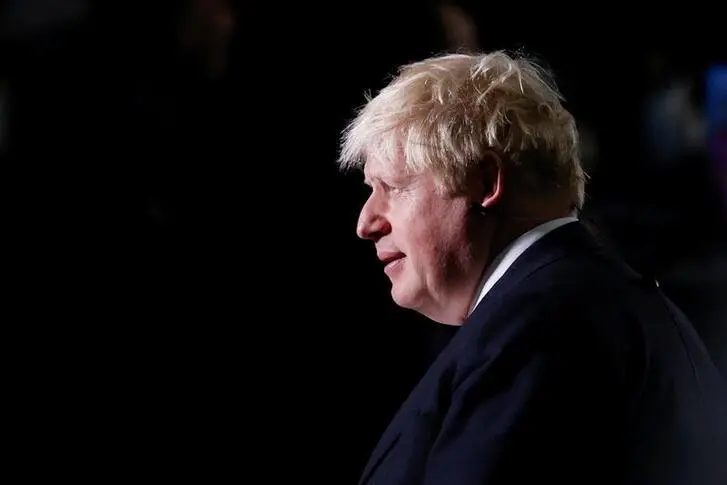PHOTO
One of the conventional wisdoms in UK politics is that Boris Johnson’s government is a strong bet to handsomely win a second term. Yet, as Parliament reconvened in Westminster this week after an autumn break, change may be in the air.
Some recent polls indicate that Johnson’s prime ministership is losing momentum. And this is before what are likely to be difficult months ahead, with the pandemic and rising infections a cause for concern.
To try to move from defense to offense, UK ministers are planning a series of key announcements, including the budget and a comprehensive spending review next week. This will set the framework for multiyear public sector spending in the period before the next election, which many people think might be in spring 2023, and can be no later than December 2024, five years after the last ballot.
The government has set out the high-level political objectives of the spending review, which are ensuring strong and innovative public services; “leveling up” across the nation to increase and spread opportunity; leading the transition to net zero carbon emissions; advancing “Global Britain” and seizing opportunities that come from Brexit; delivering a plan for growth by launching an infrastructure and innovation revolution, cementing the UK as a scientific superpower; and social programs, including education catchup premiums for pupils in England, reducing NHS waiting lists, plus hospital expansion and new buildings, and a new social care system.
Outside of this, so-called known unknowns include longer-term strategic decisions that must be fleshed out and funded. These include Global Britain, which has taken a knock with the botched withdrawal from Afghanistan and the recent UK-US-Australia defense pact, which renewed friendships in Washington and Canberra but soured them in Paris, Brussels and Beijing.
All these priorities have a price tag and a key question remains over how they will be funded, not least since all of this is set against a backdrop of rising inflation, fuel shortages and supply chain issues that — compounded by government jobs support winding down — mean individual households are set for a winter of strained finances, with many businesses having to push up their operating costs.
That said, the UK economy appears to have made a better recovery in recent months than forecast by the Office for Budget Responsibility at the start of the year. If confirmed next week, then there is the potential for some fiscal breathing space. However, there is still considerable uncertainty in the UK’s projected economic performance into the next financial year and any favorable consequences for the Treasury — a rise in tax receipts, for example — will likely be deployed to reduce borrowing or kept back as reserves for future pandemic measures.
There is a general consensus that the current tax framework will remain largely in place until later in the Parliament, not least because 2021 has already brought a record number of tax rises. There is, however, a sense of keeping the tax system adaptable and the Treasury might have in its sights the “winners” of the pandemic, such as supermarkets, online shopping websites and other technology platforms whose tax contributions may come under increased scrutiny.
Similarly, options such as business rates reform may prove invaluable tools for supporting some of the key “losers” of the pandemic, particularly those in the tourism and hospitality sectors and areas of the country where tax breaks can assist in the leveling up agenda.
Johnson hopes that these and other big announcements will provide political momentum into 2022 and help give a governing purpose to his administration in the absence of any coherent, defining signature issues, other than leading the UK during the storm of the pandemic.
However, in this unpredictable landscape, what would be highly damaging for Johnson this autumn or winter would be further pandemic-related lockdowns, which could mean that the political pressure on him reaches boiling point, given his prior commitment to the “irreversibility” of the lifting of restrictions in the summer.
The prime minister knows that another series of regional or England-wide lockdowns, which he has previously insisted will not be needed, would be a body blow to his political credibility and authority — so much so that there may be increased doubt in Westminster if he can survive until the next election, given that his approach to tackling the crisis is already seen by many as chaotic and incoherent.
When Johnson scored his huge election win in 2019, it was widely expected that he could remain in office for much of the 2020s, yet the roller-coaster ride that his premiership is proving to be means his term could end far sooner, and in potentially ignominious circumstances.
- Andrew Hammond is an Associate at LSE IDEAS at the London School of Economics.
Copyright: Arab News © 2021 All rights reserved. Provided by SyndiGate Media Inc. (Syndigate.info).





















